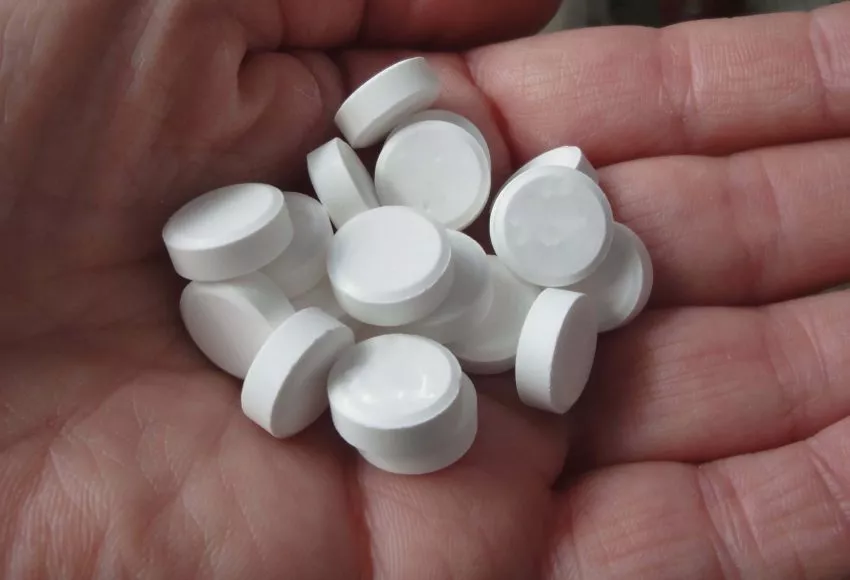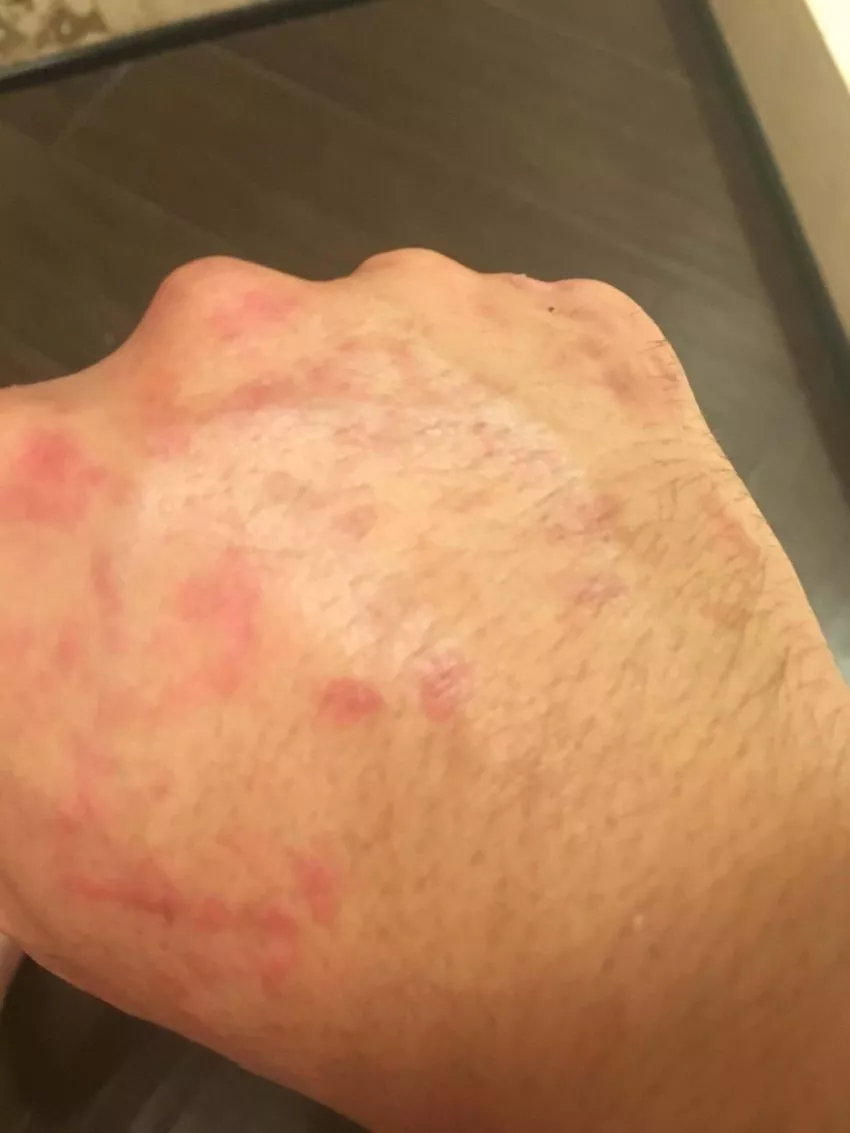Valium – or also known as diazepam – was approved by the FDA (Food and Drugs Association) in 1963. Since then, valium has been used to relieve anxiety, control muscle spasms, treat seizures, and even handle alcohol withdrawal symptoms. But how long does valium stay in your system? Do you even know about that?
That question may not occur to many while they are still on a treatment. Of course, their main focus is on their own mental health. So, while they are still on diazepam, they may not give that much of a thought.
However, after a while, you may need to consider the answer to that question: “How long does valium stay in your system?” Not only that, you also need to consider other side effects.
First of all, we need to know how valium works. From there, we get to work on how to live without it.
How Valium Works

Belonging to a class of drugs called benzodiazepines, valium or diazepam works by calming the brains and the nerves. Of course, this is not the over-the-counter medications.
Since you cannot treat this like other medicines such as ibuprofen, you need to consult with your doctor or pharmacist first. It is not advisable to buy and take some your own, especially when your GAD (general/generalised anxiety disorder) starts kicking in.
There are two types of valium: the liquid and non-liquid. As prescribed by your doctor, you can take this with or without anything to eat first. To get the right dosage, avoid using regular, household spoons. The pharmacist usually provides a special spoon if your diazepam is liquid.
Your age, medical condition, and response to treatment are considerations to the right dosage.
GAD (General/Generalised Anxiety Disorder)
Earlier, GAD or general/generalised anxiety disorder has been mentioned. Valium or diazepam is the medication to treat this disorder. But what is GAD exactly?
GAD can be seen from how the person has excessive, uncontrollable, and often irrational worries or fears. People who do not experience this still have worries or fears, but they still know how to control the feelings.
On the other hand, people with GAD suffer more. The worries and fears they feel do not just affect their moods. They may also disrupt their daily activities and social interactions.
People with GAD may always be in an alert mode. To them, it is a “fight or flight” situation. Because of this approach or outlook on life, they tend to tire themselves out very, very easily.
Other symptoms related to GAD include:
- Constant fidgeting
- A headache
- Numbness
- Muscle pain
- Trouble swallowing
- Stomachache
- Throwing-up
- Diarrhea
- Trouble breathing (and often followed by hyperventilating)
- Attention span issues
- Trembling
- Sweating
- Trouble sleeping (or a sleeping disorder, like insomnia)
About 4% of the world’s population is affected by GAD at some point in their lives. With formal diagnosis and the right treatment, GAD can be handled and hopefully eliminated for good.
How To Handle Anxiety (Before Having To Take Valium)
Ideally, nobody wants to be sick and rely on drugs all the time. In fact, it is better if you know how to handle things without them at all.
However, not everyone is that lucky. Still, before you have to take a valium, let’s try some of these methods first:
1. Inducing Your Body’s Relaxation Response Regularly
Learn this relaxation technique for at least ten minutes every day. Early morning is the best time.
2. Breathe Through The Day Outwardly and More Intentionally When Stress Attacks You
There is this thing called “4-6-8” technique. First, breathe in through the nose in 4 seconds. Hold it deep in the lungs for six seconds. After that, breathe it out slowly for eight seconds.
3. Focus on The Problem That Bugs You The Most and Try to Solve It
Although rather difficult, choose one that fills your mind the most. Assess the issue more thoroughly. If you find that it is not as bad as you are afraid of, then you can let it go.
Other Things to Avoid While Suffering From GAD
Just like some other mental issues, there are other things to avoid while suffering from GAD. Besides taking valium based on the doctor’s prescription, here are some of the things that you can also do:
1. The Potential Triggers
Although you cannot predict when anxiety might strike again, learning from past episodes can really help you. Every time you have it, try to remember what causes it. Then you can start your own health journal to keep track of the triggers.
2. Taking Too Much Work
One of the not-so-good distractions from your anxiety is when you end up taking too much work. In a way, it could really turn your attention from what causes you to be anxious. However, if the work overwhelms you, the anxiety also worsens.
3. Other People Who are Not So Understanding
It is impossible to expect the whole world to understand your condition. This does not mean that you hate people or want to push them away. Instead of confusing or scaring them even more, you decide to keep your space.
You can still keep other people who understand your condition better. Not only your therapist but also your more supportive family members and friends.
The Valium Withdrawal Symptoms
So, how long does valium stay in your system? Because after a while, when it is no longer needed, you may stop using it.
The bad news is, you may need to be ready for valium withdrawal symptoms. Some of the symptoms include:
- Tremor or shaking.
- Muscle cramps.
- Excessive sweating.
- Anxiety
- Feeling restless.
- Seizures
It is never advisable to just go “cold turkey” with any medications. Those who suffer from valium withdrawal symptoms are usually patients who have taken it for a very long time and in a higher dosage.
Whether you suffer from withdrawal or the medication stops working, tell your doctor right away. The dosage might be reduced or lowered, especially to avoid substance abuse or addiction.
In the meantime, avoid consuming grapefruit, since this may clash with the medication inside your body and cause unpleasant side effects.
How Long Does Valium Stay In Your System? (5 mg)

Since dosage is a critical issue in this matter, each has a different side effect on a patient. In this case, let’s start with a 5 mg dosage.
How long does valium stay in your system, if it is prescribed only for 5 mg by the doctor? Again, you need to consider your age, mental condition, and response to diazepam. The older you get, the slower your body metabolism tends to be.
It also depends on how long you have taken it. The longer you consume valium, the longer it takes to stay in your system. Even if you are only prescribed a 5 mg dosage per take, this also depends on how often you do that in a day.
Since this can happen differently to each patient, valium can stay in your system (and yes, that includes showing up in your urine test) up to six weeks or 1.5 months.
How Long Does 2 mg Valium Stay In Your System?

There is this thing called ‘Valium half-life’. This is how long valium generally stays in your body per one take. The range of time can go between 30 to 56 hours. This means, traces of diazepam in your body will disappear between nine to ten days (which means a week plus two or three days.)
How long does 2 mg valium stay in your system? Since it is much lower than the 5 mg dosage, doing a simple math may help just a little bit. You can drop the numbers from six weeks down to three. That, of course, if the patient’s metabolism is really good and the age factor does not matter much.
This is why, instead of fretting or reducing your dosage without consulting your doctor first, a regular workout may help you. It can boost your body metabolism, which quickens the process of eliminating valium from your system.
How Long Does 10 mg Valium Stay In Your System?

It has been mentioned that the range of valium’s half-life is between 30 to 56 hours. The average for it is 43 hours. This means, when it reaches that amount of time after you take your diazepam, half of it will already be eliminated from the inside of your system.
Based on the two previous amount of dosages (the 5 mg and 2 mg valium intakes), how long does 10 mg valium stay in your system? On average, it will be 100 hours or 12 weeks (which also means less than two months).
Since traces of valium appear on a urine test, make sure that you do not take them before a drug test at work. Many have failed to get their dream jobs because of this.
How to Quit Taking Valium in A Safe Way

It is not advisable for you to go “cold turkey” with this. Instead of doing this alone, get your doctor and other people from your support group to help you. This is to avoid the possibility of relapsing, which can still happen in some cases.
Of course, you need to focus on the aftercare. Even if you have a relapse, do not feel too bad. You can always work on your health again.
As additional information:
Repatha Side Effects

What is Repatha? Before we talk about Repatha side effects, let’s get to know this medication first.
Repatha is a drug that can help you to lower your cholesterol level. High cholesterol level can cause a lot of unhealthy side effects, from slowing your metabolism to a migraine and other illnesses related to this matter.
Without repatha, high cholesterol can also cause mood imbalances and in turns, depression.
Repatha is a drug evolocumab. It is used by injecting it into your body. Of course, this is not a quick fix, because you also need to have a proper diet program and consume statins, which are other cholesterol medicines.
Repatha is not for people allergic to evolocumab. Repatha side effects include:
- Nose, throat, and sinus acute infections.
- Back pain.
- Flu
- A major sore throat.
Other severe side effects include:
- Bruises
- Diarrhea
- Coughing
- Dizziness
- A headache
- A sense of sickness (or wanting to vomit).
- Stomach and intestines problems.
- Pain in the joints.
- Exhaustion
- Muscle spasms.
- Urine Tract Infection.
In some cases, Repatha side effects also include skin rashes and eczema.
Otezla Side Effects

Just like Repatha, Otezla is also used whenever there is a side effect of valium withdrawal. Otezla is a drug that is used to treat arthritis, especially the one related to psoriasis. Otezla is also used to treat a skin condition called plaque psoriasis.
Also known as Apremilast, Otezla is taken orally and usually twice a day. Of course, you cannot spit, chew, or crush it, unless your doctor says it is okay.
To be on the safe side, the doctor usually suggests that you begin with a lower dosage first. Of course, the dosage can gradually be increased, as long as it is based on your doctor’s instruction.
Aside from taking it regularly, you also need to alert your doctor if it no longer helps you.
What are the Otezla side effects like? Here are some of them:
- Diarrhea
- Vomiting
- Losing your appetite.
- A h
- Losing weight.
- Nausea
In some rare cases, Otezla side effects may include depression, suicidal thoughts, and mood imbalances. If you experience any of these, talk to your doctor immediately for more medical attention.
Conclusion
Now you know the answer to: “How long does valium stay in your system?”Not only that, you also know that each dosage of valium (whether it is 2 mg, 5 mg, or 10 mg) has a different amount of time to wear off.